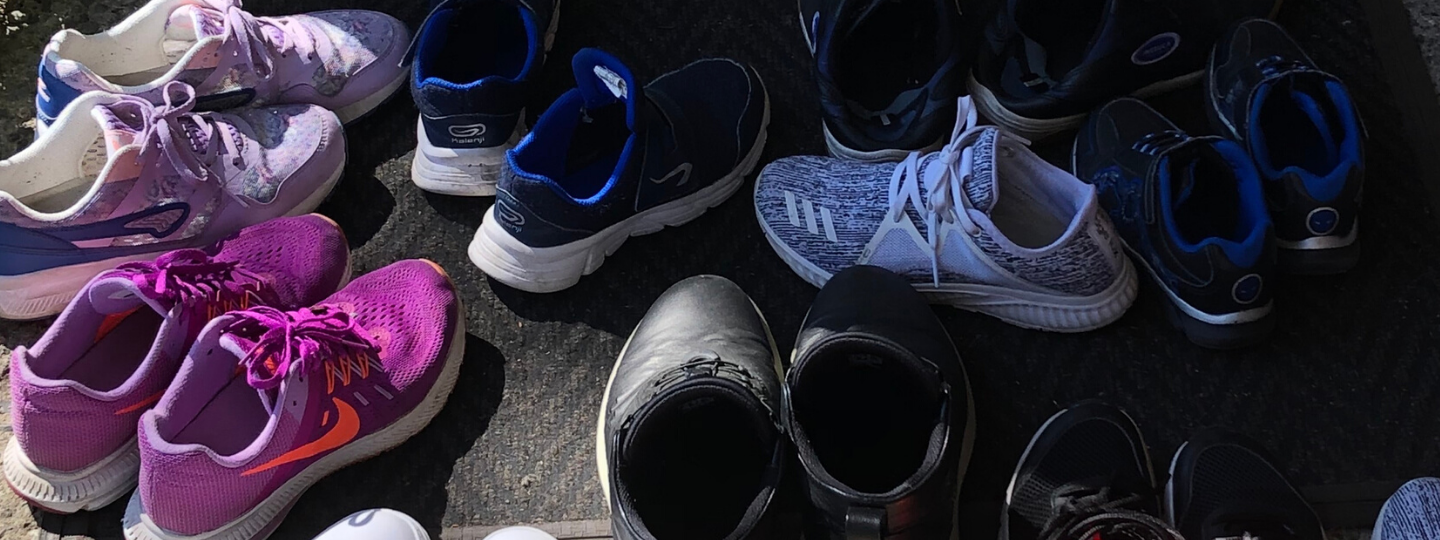Fitting in at school
Fitting in at school
It is a tough experience when you feel you're not fitting in at school. Read advice and useful tools that may help.

It can seem like everyone else has found their group and is fitting in at school. We can end up feeling very lonely and isolated when we don’t feel we fit in.
If you feel like you don’t fit in, you’re not on your own. According to My World Survey 2, over one in five young people considered friends to be a source of stress. 39% of adolescents reported that they had experienced bullying at some point in their lives.
As we get older, we tend to spend much less time with family and more time with friends. For many young people, fitting in is really important. It seems that everybody wants to be popular. This can lead to social rivalry, competition and bullying, particularly in school.
When you feel like you don’t fit in, it can be an extremely tough experience. There are no easy answers, but some of the following may help.
It’s not your fault
If you are feeling left out, it is probably not because of anything you have or haven’t done. Social dynamics play a big role in this. Peer groups in the classroom usually form around similarities amongst students. A few students can become socially dominant and set the tone of the classroom culture.
This can lead to some students feeling isolated and that they do not belong.
Recognise what is happening
Before looking for a solution, try to understand what is going on so you can put your efforts where they will pay off. If you don’t fit in at school, it is likely to be because of reasons which are outside your control, for example, classroom dynamics or the interests of your classmates. However, there may be some other factors which can be addressed, like social skills or bullying.
If you find it hard to see why you don’t fit in or what you can do, it might be a good idea to talk it through with someone on the outside. Is there One Good Adult in your life that you could discuss it with? If not, you might like to think about it with someone in Jigsaw.
You do you
Just because you don’t fit in with a particular group does not mean that there is anything wrong with you. It can be challenging to stay true to yourself and not run with the herd in school. However, your uniqueness will be appreciated and valued in other environments. Try to remind yourself of this.
-
Exercise: Daily Affirmations
A daily affirmation is a simple statement that defines you as you want to be. Research shows that through repeating a daily affirmation you can start building this belief in your mind. Examples of affirmations are:
– I am confident and comfortable in my own skin
– I fully accept myself and know that I can achieve great things
– My uniqueness is great and makes me who I am
Don’t underestimate the effectiveness of this exercise! Remember to make the affirmation personal to your life and how you want it to be. Make the statement as though your life is that way. It is the repetition of the affirmation that leads to belief.
Search for social opportunities
Make sure you have looked at all your options. Is there anybody in your class who you are compatible with but for whatever reason you did not consider as a potential friend? Remember that we all change as we get older, so even if you had nothing in common before, consider whether things are different now.
It may also be helpful to look outside your immediate class group. Perhaps there are students in different classes or years that you gel with better.
If there is no one at school that you click with, look at strengthening your support system outside of the classroom. Get involved in activities both in and outside of school. Sport, drama, scouts, and music are just some ideas. These hobbies can help you find friends who have shared interests. They can also help you to release stress, as well as give you confidence for dealing with the situation at school.
-
Exercise: G.I.V.E. social skills
All of us can benefit from working on social skills. Here is just one example. G.I.V.E. is a skill that can help you to maintain positive relationships and encourage others to feel more friendly towards you.
G– Stands for Gentle: approach others in a non-threatening manner, avoiding judgmental statements.
I– Interested: try to show interest by listening to the other person and not interrupting.
V– Validate: acknowledge the other person’s wishes, feelings, and opinions.
E– Easy: have an easy manner by smiling and using a light-hearted, humorous tone.
Consider areas to work on
Although we don’t have to change who we are, some of our qualities or behaviours can make it harder for us to fit in. Nobody is perfect, but it might be helpful to work on some aspects of ourselves.
- If you notice that you are shy or socially anxious you might like to learn ways to manage this.
- If you find it hard to manage your anger and have a bad reputation because of that, it might be important to develop ways to regulate your emotions.
- If your views tend to be unpopular, you can learn to express them in a way that won’t cause the negative reactions you feel.
- If you find it hard to be fun for fear that people won’t like you for your real self, it might be helpful to learn not to care too much about what other people think. Think about challenging that ‘inner critic’.
Popularity and friendship are not the same
Sometimes it might be an impossible task to become popular in your classroom. Keep in mind that popularity and friendship are not the same. Popularity is about rank, however, friendship is about caring relationships.
Instead of trying to be popular, it is better to accept having a few close friends you can trust and have the ability to enjoy the pleasure of your own company.


